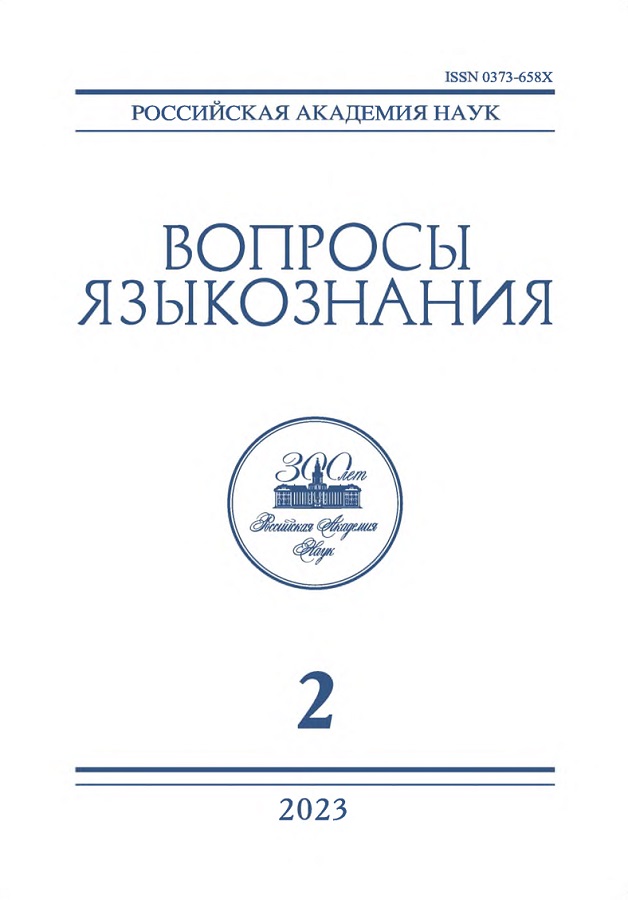Nº 2 (2023)
- Ano: 2023
- Artigos: 7
- URL: https://rjeid.com/0373-658X/issue/view/10579
Edição completa
Articles
Gender variation and gender markedness in Russian nouns
Resumo
In this paper, we analyze diff erent factors aff ecting gender assignment in Russian nouns. We conducted two studies combining experimental, dictionary, and corpus data (relying both on traditional corpora and on the web-as-a-corpus approach). The fi rst study is dedicated to gender assignment to expressive nouns in a situation when the gender of the base noun and the expressive suffix give contradictory cues. We demonstrated extensive gender variation in these cases and estimated the role of different factors affecting it. The gender of the base noun and the inflection associated with the expressive suffix appeared to be the most important. Animacy is also relevant (certain options are possible only for nouns denoting people) but statistically insignifi cant. The second study is on gender assignment to nouns that have a zero inflection in nominative singular and a palatalized, alveolo-palatal, or postalveolar stem-final consonant. In the previous studies, it was noted that the phonological properties of this consonant affect the gender distribution in these nouns. Our data confirmed this generalization and provided several new insights. We also demonstrated that native Russian speakers are sensitive to it. We discuss the implications of our results for different approaches in theoretical morphology and focus on gender markedness analyzing a special status of masculine gender.
 7-28
7-28


The structure of the semantic domain of modality in Russian: Modelling systemic relations between constructions (based on the Russian Constructicon)
Resumo
 29-55
29-55


Northern Russian intonation: Prosodic breaks
Resumo
 56-88
56-88


Ossetic verbal paradigms in a cross-linguistic perspective
Resumo
 89-113
89-113


Beyond syntacticocentric and lexicalist: Event-structural force-dynamic approach to noun incorporation and promotion to direct object in Amguema Chukchi
Resumo
There are two most common approaches to analyzing noun incorporation: syntacticocentric, which derives this construction via syntactic movement, and lexicalist, which argues that this complex verbal stem is formed by compounding in the lexicon via rules operating in a verbal lexical entry. Without discussing the general theoretical possibility of such analyses, in this paper I advocate a much less widespread analysis of noun incorporation. I argue that noun incorporation rules are directly derivable from the event structure. Taking W. Croft’s approach to argument and event structure, I review previous studies and provide some new field data which point towards event-structural analysis of noun incorporation and promotion to direct object formulated in concepts of force dynamics, affectedness and subevents’ ordering. I also argue that the force-dynamic analysis I propose does not postulate idiosyncratic rules: the restrictions I formulate for noun incorporation and promotion in Amguema Chukchi are simultaneously cognitively and diachronically grounded.
 114-143
114-143


Surveys
Linguistic studies of computer-mediated communication
Resumo
 144-156
144-156


Reviews
[Review of:] J. Bressem. Repetitions in gesture: A cognitive-linguistic and usage-based perspective. Berlin; Boston: De Gruyter Mouton, 2021.
 157-166
157-166












